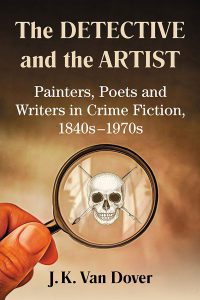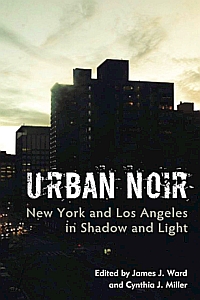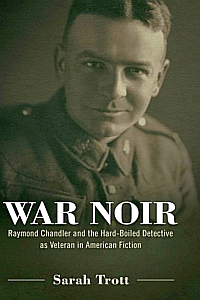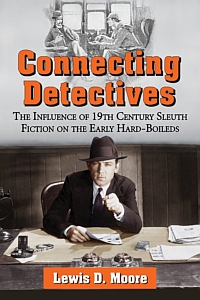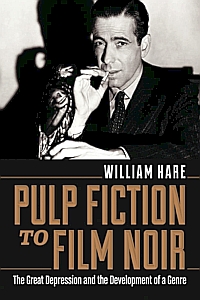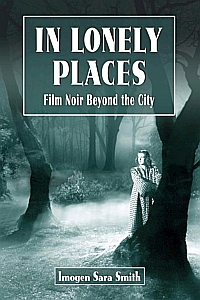In the majority of crime fiction, there exists a relationship between the main characters. “The Detective and the Artist, then, concentrates upon the role played by poets, novelists, and painters in the detective story. These specialists in the production of works of aesthetic imagination are set in radical contrast to the defining figure of the […]
You are browsing archives for
Tag: hard-boiled
Urban Noir: New York and Los Angeles in Shadow and Light by James J. Ward and Cynthia J. Miller (eds...
Both Los Angeles and New York City have been of particular interest to movie producers, especially to those who shot drama that was later called film noir. The authors want to dig deeper to unearth the reasons for those two locations, since the ”… inescapable question, then, is: Why this animosity toward the two cities […]
War Noir: Raymond Chandler and the Hard-Boiled Detective as Veteran … by Sarah Trott (2016)
Highly respected and valued by many fans of crime fiction and most likely America’s most distinguished crime writer ever, Raymond Chandler (1888-1959) together with Dashiell Hammett invented a new type of tough detective, independently of each other, they founded a style that later was described as “hard-boiled.” Many of their novels were turned into successful […]
Connecting Detectives: The Influence of 19th Century Sleuth Fiction… by Lewis D. Moore (2015)
Not only in detective fiction the issue of motive and “just how” things were finally done is of interest, the same questions (and more like them) are relevant in the simple analysis of literary traditions in which the authors of that fiction could benefit from. Lewis Moore tries to find complementary, similar behavior and continuing […]
The Hard-Boiled Female Detective Novel: A Study of a Popular … by William R. Klink (2014)
The detective novel/mystery novel is by far not a strictly male genre, meaning that there are not just male authors writing detective fiction about male investigators. Some of the authors of the early British mystery novels were female; there would be no Hercule Poirot or Miss Marple without Agatha Christie; and Dorothy L. Sayers is […]
Pulp Fiction to Film Noir by William Hare (2012)
With the advent of the Great Depression, Hollywood discovered new characters and fresh labels of films that displayed the effects of the economic struggle on various types of individuals, be it the small-time crook, the innocent and wrongly accused businessman, the farmer or the simple secretary. All of them had to face new obstacles in […]
Nightmare Alley: Film Noir and the American Dream by Mark Osteen (2013)
By choosing the rather bleak Edmund Goulding noir classic Nightmare Alley (1947) as the namesake for his new book, author Mark Osteen surprises with his fresh approach to films noir. He concentrates on the major antagonists, so to speak, of the American dream, and the American pursuit of happiness, a constitutional right in a way. […]
In Lonely Places. Film Noir Beyond the City by Imogen Sara Smith (2011)
There seem to be specific instances that make a particular type of movie clearly identifiable as belonging to a certain group. For example, we like to have deserts, gunfights and horses if we watch a western movie, and we may look out for earrings, battleships, sabers and the Jolly Roger when we watch a pirates […]

